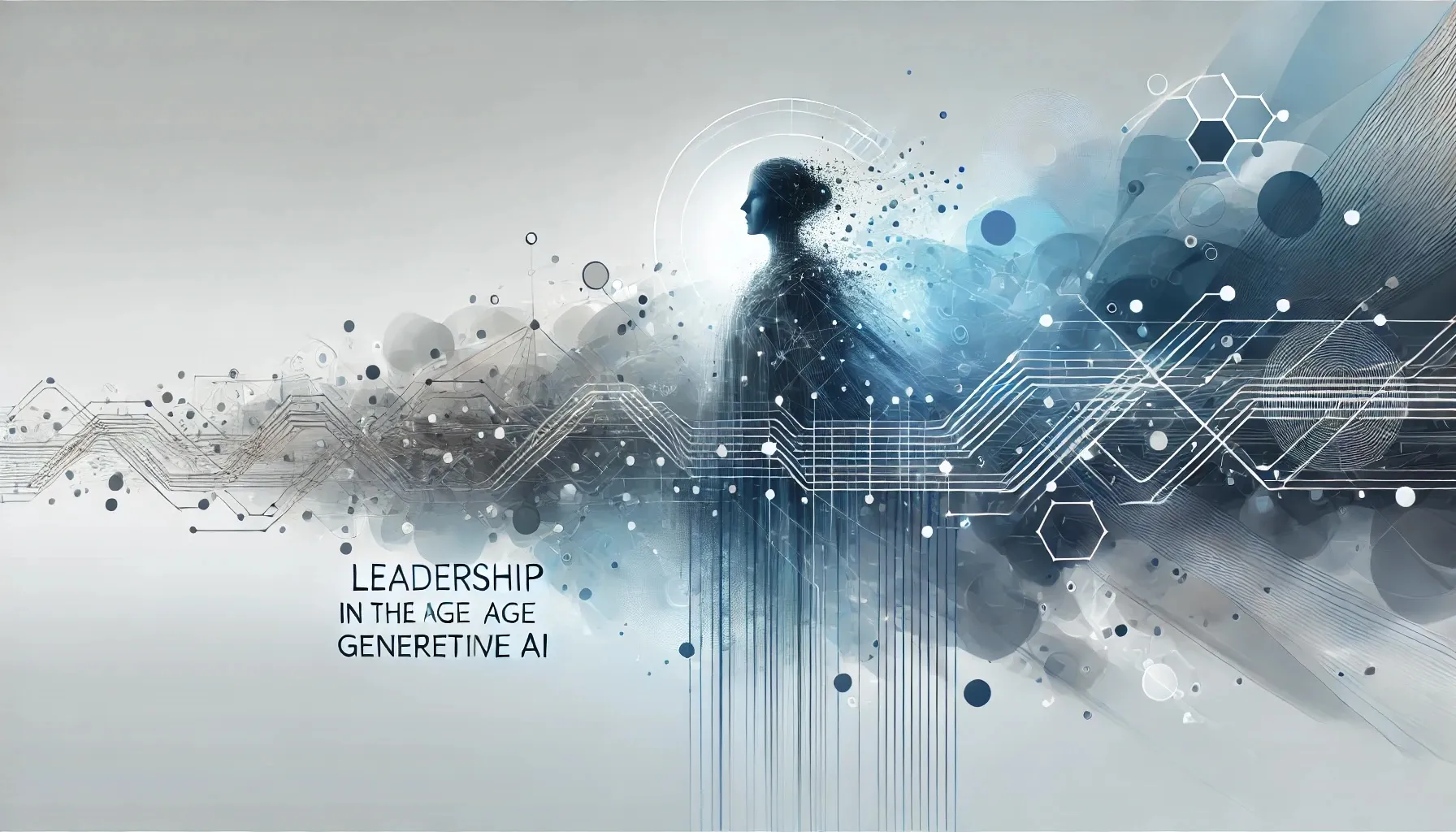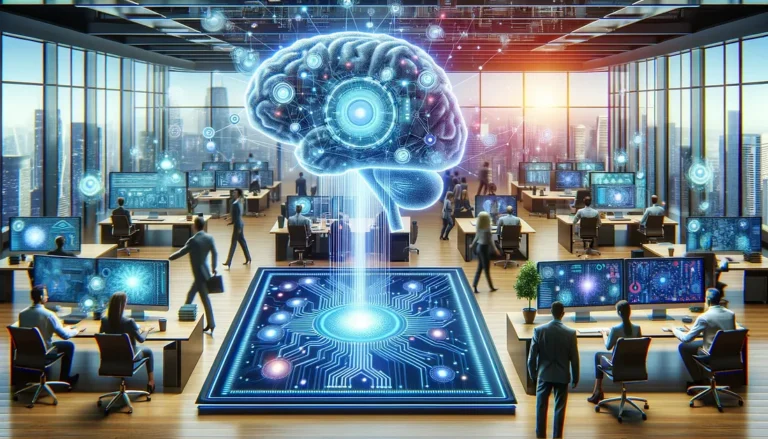Leading in the Age of Generative AI: How AI is Reshaping Decision-Making and Innovation in Key Industries
Explore how generative AI is transforming leadership, influencing decision-making, and accelerating innovation in the modern world.
The rapid rise of Generative AI is transforming industries across the globe, from healthcare and finance to education and beyond. But one of the less obvious yet profound impacts is how it’s reshaping leadership itself. Leaders today are navigating an evolving landscape where AI is increasingly playing a role in decision-making, strategy development, and innovation.
In this article, I’ll explore how generative AI is influencing the future of leadership. From enhancing decision-making with data-driven insights to enabling creative problem-solving at unprecedented scales, AI is redefining what it means to lead in the digital age. As we move forward, understanding how to leverage AI effectively — while maintaining the human elements of leadership — will be critical for leaders aiming to stay ahead of the curve.
The Rise of AI in Decision-Making
Generative AI is revolutionising how leaders make decisions. Traditionally, decision-making relied heavily on experience, intuition, and limited data. Today, AI provides leaders with vast amounts of real-time data, predictive insights, and scenario analyses, enabling them to make faster, more informed choices. In industries like consulting, services, and software development, where agility and precision are key, this shift is particularly impactful.
Leaders now have the ability to simulate outcomes, forecast market trends, and test strategic decisions without committing significant resources. However, while AI enhances decision-making, it also places new demands on leadership. The challenge is no longer just about gathering information; it’s about interpreting AI-generated insights and balancing them with human intuition and values.
How to Implement:
- Use AI tools to gather data and run predictive models to guide strategic decision-making.
- Maintain a balance between data-driven insights and human judgement to avoid over-reliance on AI.
AI-Driven Innovation: Accelerating Creativity and Problem-Solving
In consulting and software development, innovation is the key to staying competitive. Generative AI opens up new possibilities for innovation by automating routine tasks and generating new ideas that would take humans much longer to conceive. Whether it’s creating software code, crafting marketing strategies, or optimising operations, AI can drastically reduce the time and effort required for innovation.
For software development companies, AI tools that can write code, automate testing, and streamline development cycles are becoming essential. This leads to faster time-to-market, but it also raises questions: How do you differentiate your services when AI can do much of the routine work? Here, leadership plays a critical role. Leaders must ensure that their teams use AI to enhance creativity rather than replace it, pushing the boundaries of innovation while staying grounded in their company’s unique vision and values.
How to Implement:
- Encourage your team to use AI for ideation and problem-solving while focusing on human creativity and strategic thinking.
- Ensure that AI is seen as a tool for accelerating innovation, not replacing human ingenuity.
The Battle for Relevance in Consulting and Software Development
Generative AI is disrupting the consulting, services, and software development industries at their core. Companies that once thrived on bespoke solutions and human expertise are finding themselves in competition with AI-powered platforms that can deliver faster and cheaper solutions. This has led to an identity crisis for many businesses, as they struggle to find a new edge to stay relevant in the market.
Leadership is now more critical than ever. Leaders must not only adopt AI but also redefine their company’s value proposition. The human element — strategic foresight, deep industry expertise, and nuanced problem-solving — remains crucial, but it must be integrated with AI in a way that enhances service offerings. Leaders must lead their teams through this transformation, ensuring that they don’t fall behind in an AI-driven world.
How to Implement:
- Reevaluate your company’s core competencies and identify how AI can enhance, rather than replace, the value you offer to clients.
- Focus on leadership development that embraces change management, ensuring your teams are equipped to work alongside AI.
Balancing AI with Human Leadership
While AI can analyse vast amounts of data and even generate creative ideas, it lacks the emotional intelligence, empathy, and ethical reasoning that human leaders bring to the table. In consulting and software development, where client relationships and long-term partnerships are paramount, the human element of leadership becomes even more important.
Leaders must be adaptable and flexible, knowing when to lean on AI for efficiency and when to bring human judgement to the forefront. In high-stakes decisions, especially those involving ethics or complex interpersonal dynamics, human leadership is irreplaceable. This balance between AI’s capabilities and human leadership is where companies will find their competitive edge.
How to Implement:
- Develop leadership training that focuses on emotional intelligence, ethical decision-making, and complex problem-solving — areas where AI falls short.
- Foster a company culture that encourages collaboration between AI tools and human leadership.
Key Points/Takeaways
- AI enhances decision-making by providing data-driven insights, but leaders must balance this with human intuition and ethical reasoning.
- AI-driven innovation is transforming consulting and software development, but human creativity remains crucial to stand out in the market.
- Leadership is critical for companies struggling to stay relevant, guiding teams through AI integration while maintaining their unique value.
- Balancing AI with human leadership ensures that companies can harness the power of AI while retaining the emotional intelligence and strategic foresight only humans can provide.
Onward
As generative AI continues to disrupt industries, leaders must adapt to an evolving landscape while retaining the human qualities that make great leadership indispensable. Whether it’s in consulting, services, or software development, the companies that will thrive are those that balance AI’s capabilities with human creativity, judgement, and empathy.
If this article resonated with you, please share your thoughts.






